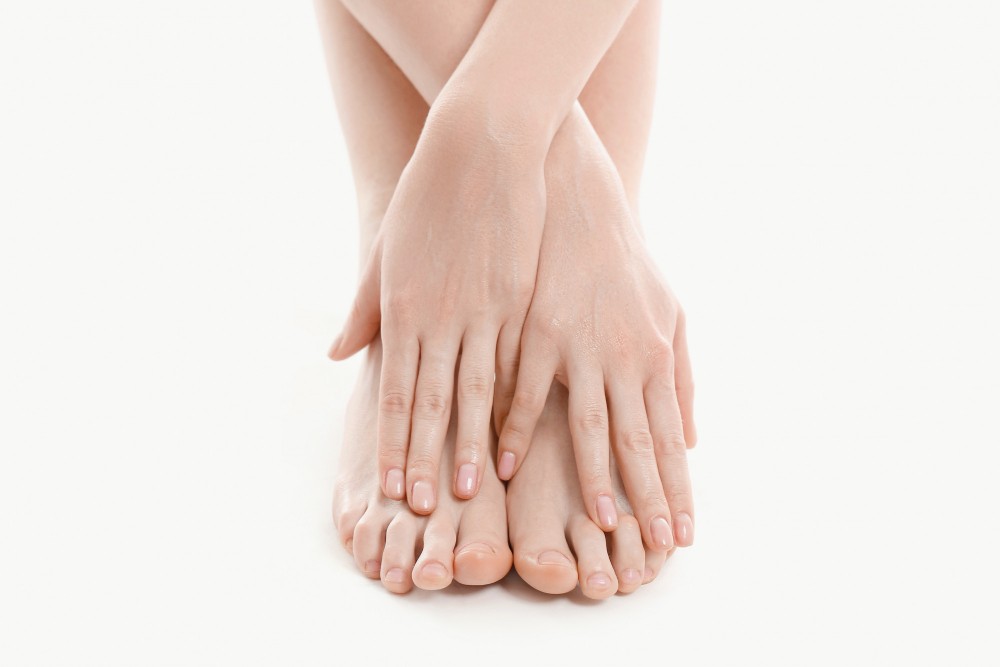Penyakit kaki gajah adalah salah satu penyakit yang masih banyak dijumpai di Indonesia. Penyakit kaki gajah ditandai dengan pembengkakan di salah satu atau kedua kaki dan tangan. Orang yang terinfeksi kaki gajah sering kali tidak menyadari gejala awal yang dialami sehingga menyebabkan keterlambatan penanganan.
Apa Itu Penyakit Kaki Gajah?
Penyakit kaki gajah atau yang juga dikenal dengan istilah filariasis atau elephantiasis, adalah penyakit infeksi yang menyebabkan kulit menebal dan pada beberapa kasus, mengalami kerusakan bentuk. Seseorang dapat tertular penyakit kaki gajah melalui cacing parasit (cacing filaria) yang menginfeksi sistem limfatik. Parasit ini menyumbat kapiler limfatik sehingga menyebabkan penumpukan cairan.
Orang yang terinfeksi penyakit kaki gajah umumnya tidak menunjukkan gejala khusus. Gejala yang paling umum dan nampak dari penyakit kaki gajah adalah adanya pembengkakan di beberapa bagian tubuh seperti:
- Kaki
- Area genital
- Dada
- Lengan
Penyakit ini umumnya ditandai dengan bengkak di kaki, sehingga dikenal sebagai penyakit kaki gajah. Pada area yang membengkak, kulit menjadi kering, tebal, menghitam, berlubang, dan terbentuk lesi.
Baca Juga: Jenis Cacing yang Bisa Masuk dan Hidup di Tubuh Manusia
Bagaimana Penyebaran Penyakit Kaki Gajah?
Penyakit kaki gajah disebabkan oleh infeksi parasit cacing filaria seperti Wuchereria bancrofti, Brugia malayi, dan Brugia timori. Parasit ini dapat menyebar melalui gigitan nyamuk.
Ketika nyamuk menggigit seseorang yang terinfeksi parasit, parasit dalam darah orang tersebut akan menginfeksi nyamuk. Ketika nyamuk menggigit dan menghisap darah orang selanjutnya, maka parasit tersebut akan menyebar pada orang tersebut.
Penyakit kaki gajah tidak menyebar melalui satu gigitan nyamuk. Seseorang baru akan terinfeksi parasit kaki gajah setelah mendapat gigitan nyamuk terinfeksi selama beberapa bulan atau tahun.
Ketika parasit masuk ke aliran darah, parasit ini menyerang sistem limfatik dan berkembang menjadi cacing parasit dewasa yang kemudian melemahkan sistem limfatik seseorang.
Pencegahan Penyakit Kaki Gajah
Cara terbaik untuk mencegah penyebaran penyakit kaki gajah adalah dengan menghindari gigitan nyamuk, terutama jika Anda berada di daerah tropis. Beberapa cara yang bisa dilakukan untuk pencegahan antara lain:
- Tidur menggunakan kelambu
- Mengoleskan losion antinyamuk pada kulit yang terbuka
- Menggunakan celana panjang dan baju lengan panjang
- Menghindari area lembap tempat berkembangnya nyamuk
Baca Juga: Sering Dialami Anak-Anak, Kenali Penyebab dan Cara Mengatasi Infeksi Cacing Kremi
Pengobatan Penyakit Kaki Gajah
Hingga saat ini tidak ada vaksin atau obat khusus untuk penyakit kaki gajah. Pemberian obat-obatan bertujuan untuk membunuh cacing di dalam tubuh dan menghentikan penyebaran infeksi ke orang lain serta mengurangi keparahan gejala.
Pengobatan kaki gajah bergantung pada gejala yang dialami. Secara umum pengobatan kaki gajah dapat mencakup:
- Pemberian obat antiparasit. Obat antiparasit bertujuan untuk menghancurkan cacing dewasa dalam darah dan mencegahnya berkembang biak. Obat ini mungkin perlu dikonsumsi setahun sekali selama beberapa minggu untuk memastikan parasit kaki gajah benar-benar mati.
- Operasi. Dokter dapat merekomendasikan pembedahan untuk membuang cacing mati dari aliran darah. Jika filariasis telah menyebabkan penumpukan cairan, dokter dapat melakukan pembedahan untuk menghilangkan penumpukan cairan.
- Penanganan kaki gajah. Dokter dapat merekomendasikan perawatan untuk mengurangi pembengkakan pada kaki seperti penggunaan stoking kompresi.
Penyakit kaki gajah masih menjadi penyakit endemik di beberapa negara tropis. Jika Anda bepergian ke negara yang merupakan endemik penyakit kaki gajah sebaiknya lakukan antisipasi dengan menggunakan pakaian lengan panjang dan mengoleskan antinyamuk.
Jika memiliki pertanyaan seputar kaki gajah sebaiknya periksakan ke dokter atau manfaatkan fitur konsultasi pada aplikasi Ai Care.
Mau tahu informasi seputar penyakit lainya? Cek di sini, yah!
- dr Nadia Opmalina
Cleveland Clinic. Lymphatic Filariasis (Elephantiasis). Available from: https://my.clevelandclinic.org/health/diseases/elephantiasis
WebMD Editorial Contributors. Elephantiasis: What to Know. Available from: https://www.webmd.com/a-to-z-guides/elephantiasis-what-to-know
Health Direct. Elephantiasis. Available from: https://www.healthdirect.gov.au/elephantiasis#
Leonard, J. (2023). Can you treat elephantiasis?. Available from: https://www.medicalnewstoday.com/articles/321797












